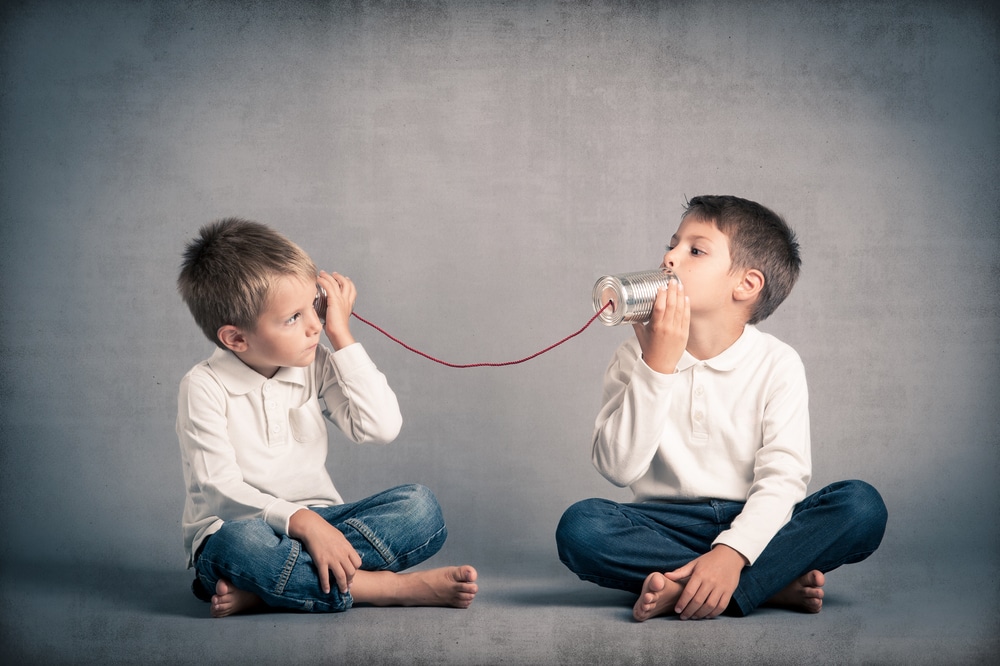
23 May, 2022 Overcoming Communication Struggles in Children
By Naya Fraidy
People communicate differently, and that’s in part because they learn to communicate in different ways. The same principle applies to kids.
Some kids love to talk about everything under the sun, while others often find it difficult to express what they’re feeling. But if you’ve noticed that your kid is having a hard time communicating with you, know that they’re not alone –– particularly in light of the events of the past two years.
New findings from the scientific journal Nature report that the pandemic is affecting communication development in everyone from babies in the womb to young children. Researchers attribute this partially to the added stress COVID-19 has placed on parents, which can affect both fetal development in pregnant mothers and the time parents spend communicating with their kids.
These are certainly troubling implications, and should be taken seriously. Yet at the same time, they might not fully explain what your kid is going through. Below, we discuss a few additional reasons why your child (or children) may be struggling with communication –– and how you can help them.
Social skills
There are a lot of unspoken social rules and cues your kid may have difficulty understanding. For example, your kids might be making jokes at inappropriate times, interrupting conversations, or talking without knowing when to stop. If you notice them facing these issues, take the time to first determine the extent of said issues; ask their teacher(s) how your kid talks to others in school, and observe how they interact with you and others at home.
From there, sit down with the child and use what we’ve previously described as the coach approach: Give instructions, not commands –– and do so warmly, but firmly. Talk about various social cues and why they matter. For example, you can say that interrupting others while they’re talking is unfair because it doesn’t give them enough time to express their feelings. Next, teach them empathy: How would they feel in the other person’s shoes? Activities like role-playing can help them grasp the concept. Finally, set a good example. Modeling the behavior you want to see is a great way to show kids how things should be done.
You can also consult psychologists and counselors if you feel you need professional assistance. Behavioral therapy can help solidify your child’s understanding of acceptable communication behavior, while stimulant medications may also be recommended if your kid exhibits any symptoms of impulsivity or hyperactivity while communicating.
Language skills
On the other hand, your kid might also have problems with language. Such difficulties may stem from communication disorders caused by underlying genetic or brain development issues. For example, speech-sound disorders may leave your child struggling to say certain sounds or words. If you notice that your child stutters often, they may have a childhood-onset fluency disorder impacting how they communicate with others.
Your kid may also have problems with what psychologists call “word retrieval,” or finding the right words to say. If this is a regular struggle, it may indicate the presence of a language disorder. This can manifest in three ways. Expressive language disorders manifest in people having a hard time communicating messages to others, and receptive language disorders mean individuals find it difficult to extract meaning from what others say. One can also have mixed receptive-expressive language issues.
If you suspect your kid has a communication disorder, you may have to first consult an audiologist to eliminate the possibility of hearing issues. Afterward, a speech-language therapist with a background in communication sciences and disorders can evaluate your child. These professionals study both under experts in their field and by using innovative technologies like SimuCase (simulated case study). They are thus well equipped to diagnose and prescribe the most effective treatment plans, so you can help your kids adjust to their conditions. This may include speech therapy to help them better organize how they express themselves, or environmental modifications — like having schools give your kid more time to formulate responses during class discussions or oral tests.
If your child struggles to communicate, know that it’s nobody’s fault. God created us all differently, and it’s your duty and privilege as a parent to create loving spaces where your child can learn how to communicate in their own special way.
Naya Fraidy is a writer. She is contributing this article today as a guest writer on the Counter Culture Mom blog.
Download Our New Counter Culture Mom App to get our trending news and pop culture alert notifications. Connect with other parents in the Parent Chat section to gain helpful ideas on how to counteract the Pop Culture Cult!
Be sure to contact us if there is an issue you would like to have us write about! Our mission is to help parents deal with today’s lifestyle trends and how to biblically navigate them.





No Comments